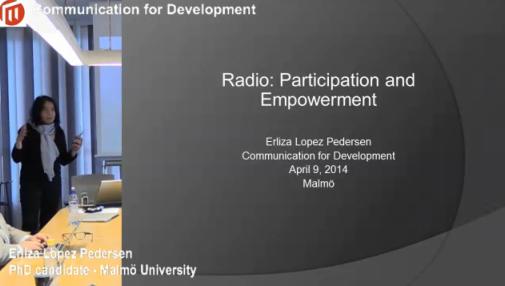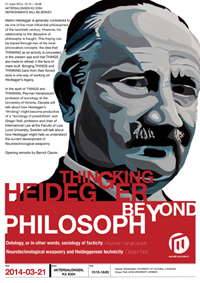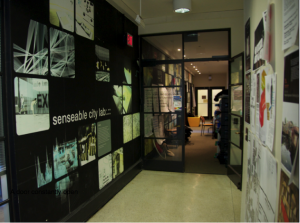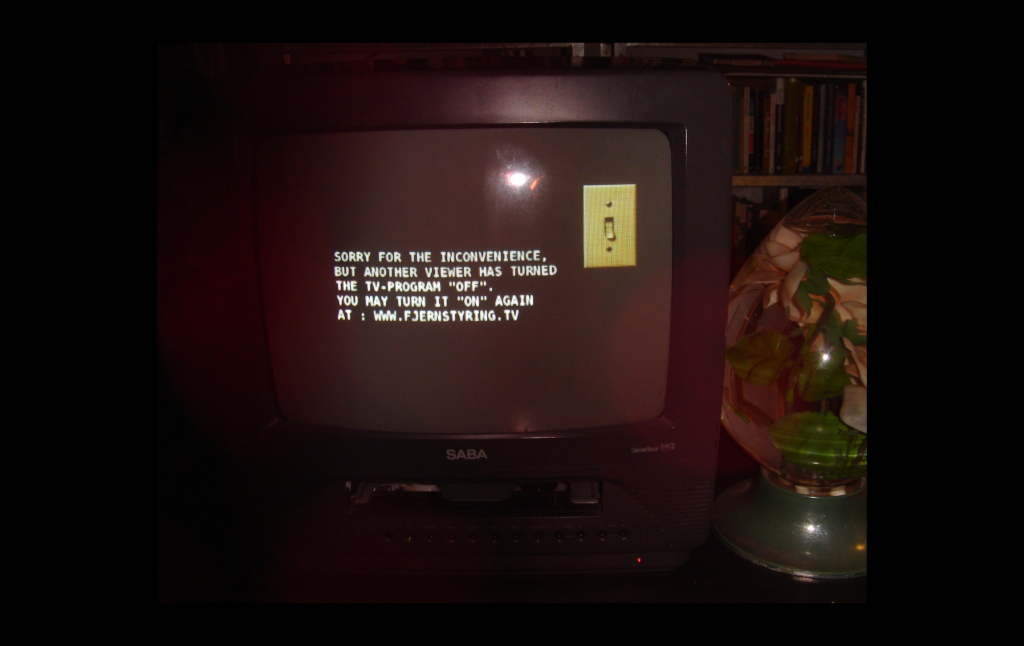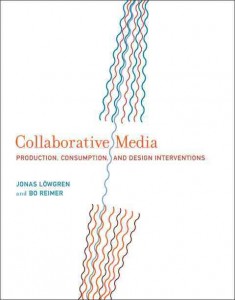Welcome to K3’s seminar series for the spring term of 2024! This term, we have divided the seminar topics among K3’s four research environments: Design, Media, Storytelling and Arts-based Research. In addition, we host three joint K3 seminars on broader topics concerning the whole department.
Keep up with us as we announce new topics!
The Zoom link for online/hybrid seminars is:
https://mau-se.zoom.us/j/62522949096
Meeting ID: 625 2294 9096
The K3 studio is booked from 13-15 on all seminar days, but the seminars will start at 13:15.
We are also happy to welcome you to PhD candidate Hugo Boothby’s nailing ceremony on April 19th, 12:30 at NI:C0425 and his PhD defence on May 23rd, 13-17 at NI:C0E11.
Feb 7 13-15 [Media]
Creative media studies – is that a thing? (hybrid)
In this seminar, the media environment invites everyone to join in some soul-searching to discuss what makes media studies in K3 special. In the spirit of boundary-crossing cohesive environments, we would like to invite all of the K3 to thinking if Creative Media Studies could be a shared label for us and if there is a book with that (preliminary) title for us to write. We would like to invite everyone who could think that they, in some ways, study creative media (making) or use creative methods to study (or make) media. In this open invitation, we would like to gather interest around a possible book-collaboration, where we could write short, easily accessible chapters about how to study creative media or how to use creative methods to study things related to media. In this very open invitation we will not (yet) define or narrow down what we mean by media or what we mean by creative, rather, we would like anyone interested to bring these insights to the table in search for commonalities and shared ways of crossing boundaries. It would be amazing if people joining us, could already think about concrete chapters they could write on the topic of Creative media, but it is optional, do come even if you don’t have any concrete chapter ideas and just want to chime in.
The seminar is hybrid and those interested in contributing to the book will receive further information, instructions and invitations after the seminar. So if you are interested, but can’t come, please send Pille an e-mail: pille.pruulmann.vengerfeldt@mau.se
Feb 14 13-15 [Storytelling]
Magnus Nilsson, Christine Hamm & Nicklas Lund: Prekariat, prekaritet och prekära liv i skandinavisk litteratur efter välfärdsstatens epok (hybrid, language: Scandinavian)
Vid detta forskarseminariet kommer det att presenteras pågående forskning från miljön Prekariat, prekaritet och prekära liv i skandinavisk litteratur efter välfärdsstatens epok.
Forskare som ingår i forskningsmiljön, Nicklas Lund från Syddansk Universitet och Prof. Christine Hamm från Universitetet i Bergen kommer att medverka.
Seminariet hålls på skandinaviska.
Feb 21 13-15 [Arts-based Research]
Mary Toreld & Johan Sandström: Cultivating Alliances within Malmö (hybrid)
We invite Mary Toreld of FRANK Gallery & Studios and Johan Sandström from Molekyl Gallery. The Arts-based Research group at K3 is exploring the theme of ARA: Arts-Research-Alliances. Mary and Johan will contribute to this discussion by offering the perspectives of their work in building artistic communities in Malmö, ones that encompass research, production, and new modes of working & living.
FRANK Gallery & Studios is a creative base in central Malmö. It contains a gallery for exhibitions/performances as well as workspaces for 20 professional artists from various disciplines. On a conceptual level FRANK is focused on working with inventing new exhibition concepts and improving working conditions for creative people. The concepts are constantly being developed for a more humble and more coherent view on art.
Molekyl Gallery is a longstanding and valuable part of the independent arts scene. It supports a wider art scene, including artists who may be in need of a collegial and reflective environment. It is a venue for experimental work that acts as a multi-dimensional artistic space, both in the sense of the actual art space and in what kind of things that might happen there. It plays across scale of ideas, work and hierarchies.
Feb 28 13-15 [K3 joint]
Camilla Norberg Hansen: Collaboration and utilization in academia (hybrid)
In this impact workshop with Camilla Norberg Hansen, Innovation advisor at MAU Innovation, we explore the question: How can your research be implemented outside of academia and contribute to society? During this interactive session, we will focus on collaboration and utilization in academia.
Mar 6 13-15 [Design]
Simon Niedenthal: From Scent Tech Histories to Scent Material Interventions: New initiatives in olfactory research at K3 (hybrid)
Olfactory interaction is perhaps K3’s most unlikely research specialty. Growing originally from the niche intersection of game studies and smell, strengthened by external interdisciplinary projects with Stockholm University and gaining special societal consequence during the pandemic, olfactory research at K3 is in the process of broadening its activities with new international collaborators and working with an expanded set of concerns and methodologies. I will outline our ongoing collaborations, early results and new initiatives that include:
1. Scent Tech Histories: Olfactory Bytes: Digital Scent Technologies and Stench Barons of the Dot-Com Era. In this project with Jas Brooks of the University of Chicago, we apply media archaeology methods to capture and reflect upon the significance of commercial digital scent output devices from the turn of the century. Media archaeology often takes critical perspective on overly optimistic media narratives; in the case of scent technologies, we argue that the conventional narrative has been too pessimistic.
2. Scent Material Interventions: Designing strategies for sustainable sandalwood conservation and cultivation in South India. Lizette Reitsma and I are organising a conference with our old partners at the IIIT-Bangalore on designing strategies to support the currently threatened sandalwood tree population in South India. Drawing upon design frameworks for the more-than-human, we will reflect on ways in which we can capture and organize indigenous knowledge about sandalwood in South India and create conditions for community-based conservation and cultivation aimed at supporting the local population of the tree.
3. Olfactory interaction design in GLAMs (galleries, libraries, archives and museums): How is perfume playful? We have some exciting new collaboration partners, the most glamorous of which is the International Museum of Perfumery in Grasse, France. My interns and I will be there for residencies for outreach, developing educational materials and prototyping interactive interventions for thesis projects. We have also cultivated a new partner in the more adverse smell domain at the Disgusting Food Museum in Malmö.
These are all nascent projects and I would appreciate input from the K3 community on how to strengthen them.
With outreach to the K3 community anchored in K3 Scent Club and educational activities rooted in courses including Tangible and embodied interaction, Experimental media production, thesis projects and internships, olfactory interaction research at K3 is an example of a research area that is fully integrated with teaching, research and internationalisation activities.
Mar 13 13-15 [Media]
Ángela Bonet, visiting PhD student: Taxonomy of Tenderness (hybrid)
This seminar will focus on developing some theoretical foundations about modernism and contemporary art, in order to explain contemporary sensibility related to some artistic examples such as Nigel Shafran’s photography. The main goal would be putting contemporary art as questioning praxis possibilities in a theoretical framework.
Ángela Bonet, a PhD student from Universidad Politécnica de Valencia (Spain), is developing research with the main aim to map a Taxonomy of Tenderness assembling contemporary sensibility through current cultural references.
Mar 20 13-15 [Storytelling]
Gunnar Krantz: Tracing, re-tracing and transferring image+text – exploring the methods of early lithographed comics (hybrid)
In the project “Autographic Double Exposure – the Narrative Characteristics of the Inked Black Line in Comics”, funded by VR, I will explore two different printing techniques; autography and risography and relate them to contemporary comics. During the first part of the project, I am focusing on autography (e.g. transfer-lithography), in relation to the self-published works of Rodolphe Töpffer (1799–1846), often named “The Father of Comics”, who not only created and published what today is considered the first comic in a modern sense, but also reflected and published two essays on his findings. In this seminar I will give a summary of the project, and present some of my findings – practical, as well as theoretical. All interested in visual narratives, comics, storytelling and artistic practice are welcome!
Apr 3 13-15 [K3 joint]
Natalia Auer & Martin Stigmar: Teaching as research (hybrid)
Welcome to a workshop with Natalia Auer and Martin Stigmar from AKL on the topic of teaching as research. Discussion points will include:
– The link between teaching and research;
– Scholarship of Teaching and Learning (SoTL);
– Action research;
– Examples of the relation between teaching and research and vice versa;
– Malmö Universities’ Application for acquisition of educational qualification.
Speakers:
Martin Stigmar is professor of higher education pedagogy. Martin teaches and researches higher education pedagogy with a focus on the role of teacher, supervisor and mentor. The research maps whether there is a common content in supervisor training for different professions (teachers, psychologists, specialist doctors and specialist dentists) and how the courses are organized. What are the coordination benefits of interprofessional tutor courses?
Natalia Auer‘s research interests fall within the fields of digital learning, digital literacy and metacognition applied to digital reading. Her current research project is part of an international research project eduCOVID19. The project aims to investigate how the current COVID19 pandemic has changed teaching practices around the world.
Apr 10 13-15 [Storytelling]
Malin Thor Thureby & Annika Olsson: Oral History – Det förgångnas röster och samtidens berättande (hybrid)
Professor Malin Thor Tureby (LS) och docent Annika Olsson (K3) presenterar sin forskning. Seminariet hålls på svenska.
Apr 17 13-15 [Media]
Jullietta Stoencheva, PhD student: Everyday Extremism in Sweden and Bulgaria
(25% seminar, hybrid)
Discussant: Fredrik Norén
In this seminar, PhD student Jullietta Stoencheva presents an extended project plan for her PhD thesis exploring everyday extremism in Sweden and Bulgaria from a media and communications perspective. This PhD project aims to understand how extremist narratives circulate in and between different places and spaces and move across three continuums: online-offline; mainstream-fringe; and local-global. Using empirical data from fringe and mainstream social media platforms, online forums, and message boards, complemented by ethnographic fieldwork in different localities across Sweden and Bulgaria, the project seeks to assess the nature and scope of extremist narratives in (and about) these countries manifesting through the interplay between online and offline activities, as well as map the ways in which these travel between fringe, radical online communities, transcend into mainstream spaces, and contribute to offline activities and (potentially violent) direct actions in local ecologies.
Apr 19 12:30-13 [Nailing Ceremony]
Hugo Boothby: Nailing/Spikning (Location: NIC0425, on-location only)
Welcome to PhD candidate Hugo Boothby’s nailing ceremony!
Apr 24 13-15 [Storytelling]
Anders Høg Hansen: Mix Tape Memories. Movement and Difference in Life Writing (hybrid)
In this seminar, Anders Høg Hansen will present his new book Mix Tape Memories: Movement and Difference in Life Writing.
This book ‘plays up’ stories of mostly unknown figures and their journeys through a life affected by movement, and a search for home. It engages with individuals and groups whose passions have carried the subjects through ‘uncharted’ or unhomely territories, here told in a series of ‘tracks’ depicting their roles in community memories and histories. Side A engages with individual journeys, such as Lewis, the American black literature book seller; the civil rights activist, Izzy, an American-Swedish folklorist; Eugene, a black classical pianist; and Pi, the Jew transported to Sweden during WWII. Side B focuses on communal histories and alternative educational and artistic spaces, addressing life writing and memory in German comic books; alternative educational spaces in Israel-Palestine and Africa, and ‘small press passions’ of zines/newsletter culture. Tellers and their interpreters are mediating identities where nationality, race, and class (and other markers of identity) have influenced selfhood and collective belonging – revealing how individuals and outsider cultures have the power to influence dominant cultures and inspire societal change.
May 2 10-12 [Media]
Paul David Flood, visiting PhD in Musicology: ‘Everybody Wanna Move Like Us!’: Songs of Afro-Diasporic Solidarity in the Eurovision Song Contest (hybrid)
The Eurovision Song Contest is the world’s largest televised music competition, wherein each participating nation is represented by an original song. Since its first edition in 1956, the Contest has become a geopolitical spectacle in which participants use music to enact soft power, promote national agendae, and shape perceptions of marginalized identities. Recent editions of the Contest have seen more performances by Black artists and of Black-American genres, often informed by lyrics and visuals suggesting narratives of resistance or perseverance. While existing scholarship demonstrates that folk musics have indeed been valuable tools and signifiers for Europe’s migrant communities, scholars have seldom linked the increasing presence of Black and Afro-diasporic musics in Eurovision to these performances of marginalized subjectivities. This linkage is necessary not only because the number of Black artists who have competed in Eurovision has increased exponentially over the past two decades, but also because Eurovision has steadily emerged as a globalizing entity, targeting and appealing to consumers beyond Europe’s geographical boundaries. In this paper, I engage two trios of Afro-diasporic representatives to the Contest—France’s entries from 1990 through 1992, and Sweden’s entries from 2019 through 2021. I argue that positioning the Eurovision Song Contest and its actors within Afro-diasporic cultural flows challenges the putative coherence of both individual nation-states and of “Europe” writ large, asking us to consider both what Europeanness can sound like, and who gets to be European.
Paul David Flood (he/him) is a musicologist whose research engages geopolitics, migration, and (post)coloniality in global popular musics. He is currently a Ph.D. Candidate in Musicology and Instructor of Music History at the Eastman School of Music in Rochester, New York, USA. His dissertation asks how members of Europe’s migrant and diasporic communities engage with the Eurovision Song Contest, its international spinoffs, and its dedicated nightlife spaces in ways that resist and revise notions of what Europeanness can look and sound like. Paul currently serves on the Executive Committee of the International Association for the Study of Popular Music’s (IASPM) US Branch. During Eurovision 2024, he will join Malmö University’s School of Arts and Communication (K3) as a Visiting Researcher.
May 8 13-15 [Arts-based Research]
Jonas Fritsch (ITU): Sticking with Affect across HCI & Interaction Design (hybrid)
In this talk, I will attempt to give a brief account of the current state of research into affect in HCI and interaction design through the lense of a range of projects carried out in the Affective Interactions & Relations (AIR) Lab at the IT University in Copenhagen (https://airlab.itu.dk/). I will make the – perhaps unsurprising – argument that there is still much more to explore, and present some paths for future research and explorations at the intersection between affective computing, affective interaction design, affect theory, digital art – and, most likely, beyond. Jonas Fritsch, PhD is Associate Professor in Interaction Design at the IT University of Copenhagen in the Department of Digital Design. He is head of the Affective Interaction & Relations (AIR) Lab and Head of the Design Research Section. His work revolves around a creative thinking of interaction design, design processes, experience philosophy and affect theory through practical design experiments with interactive sound and physical interfaces.
May 15 13-15 [K3 joint]
Andy Peruccon & Xinquan Wen, PhD students: Reworlding communities: enacting regenerative worlds across different European contexts (10% seminar, hybrid)
Both projects are part of the Reworlding doctoral network, which invites 11 different researchers across Europe and various interdisciplinary methodologies to collaborate with academic and non-academic partners and articulate those reworlding design capabilities that can tackle socio-ecological issues from diverse perspectives.
Andy’s research focuses on the exploration of regeneration through cultural interventions as a way to address societal and ecological challenges. Drawing from post-humanistic, speculative design and performative art lenses, this research aims at exploring and working with communities in Malmö, Trento and Milan, which – through festivals, rituals and other situated performative interventions – try to address and reflect upon the tensions between self and other, nature and culture as well as human and beyond human. This seminar will introduce the research plan, the context and the potential activities that will be carried out throughout the 4-year plan.
Xinquan’s research seeks to integrate more-than-human perspectives into collaborative urban ecological transformations. Affiliated with the EU project Bauhaus of the Seas Sails, this study delves into the intricate relationship between Malmö’s inhabitants and its marine environment, striving to cultivate transitions that support the flourishing of all life by fostering cultural shifts. The forthcoming seminar will introduce the planned methodologies, activities and theoretical frameworks, including design anthropology and posthuman feminism, focusing on nurturing sustainable and interconnected urban-marine relationships in Malmö, while aiming to develop strategies and design capabilities relevant for just and regenerative transformation initiatives.
May 22 13-15 [Design]
Stefan Holmlid, Linköping University: Discussing opportunities for a network of design schools in Sweden (hybrid)
May 23 13-17 [PhD Defence]
Hugo Boothby: Careful Convivial Listening: Making Sound Work Apparent as Political Action (Location: NIC0E11, on-location only)
Focusing on the creation and performance of sound work this doctoral thesis considers the value of listening as a site of political action. The meaning of sound work is dual; connoting both an artifact that is created and performed, a work of art, and the processes of creating sound, the work of listening. Listening is integral to the creation and performance of sound work and is defined in this thesis as an aesthetic relation generated in the in-between of hearing subject, sound and sound technology. Drawing on the philosophy of Hannah Arendt I recognize a distinction between the objective world building of work, and the transformative potential of political action. Listening and the relational qualities that listening affords are integral to the processes through which sound work can transform to become apparent as political action. In my doctoral research I consider a diversity of sound work including popular music, sound art, podcasting and contemporary experimental music. Applying an experimental media research methodology, I interrogate sound work’s potential to be made apparent as political action using a repertoire of methods drawn from ethnography, artistic research and participatory design. In this research I find that sound work’s potential to become apparent as political action is informed by both the quality of attention tendered by hearing subjects and the material affordances of sound and sound technology. Being attentive to the agencies of both human subjects and non-human objects I posit that an orientation towards careful convivial listening in the creation and performance of sound work can succeed in making political action apparent. Reflecting on the contribution that this research makes within the field of media and communication studies I recognise that sound work, careful convivial listening and experimental media exist as tools that can be applied in future research to build new knowledge and instigate transformative change.
Jun 5 13-15 [Storytelling]
Maria Wiktorsson: Expressive vocabulary in comics – forms, usage and translation (hybrid)
Jun 10 13-15 [Design]
Anna Schröder, PhD student: Design for human-ocean-connectedness (25% seminar, hybrid)
Discussant: Li Jönsson
The doctoral project “Design for human-ocean connectedness” explores how participatory design processes acknowledge and engage with the affective dimension of sustainable inner transitions. In the context of ocean literacy action in coastal cities, the research builds on more-than-human design, human-nature-connectedness, and theories of affect (esp. resonance theory). The empirical work of the project feeds from participatory design experiments and interviews in a programmatic structure. In the seminar, Anna will share insights into the first field experiments conducted in Malmö during spring 2024, partly in collaboration with the Bauhaus of the Seas project.
Jun 12 13-15 [Arts-based Research]
Maria Hellström Reimer & Tania Ruiz: DNA at Play: Flows of facts and fictions in the field of recreational genetics (Location: STORM, A122, Orkanen, on-location only)
In this seminar, Maria Hellström Reimer, Professor in Design in theory and practice at K3, and Tania Ruiz, Maître de conference/Associate Professor at Université de Paris 8, researcher at TEAMeD, and honorary doctor at MAU, will present their project “DNA at Play: flows of facts and fictions in the field of recreational genetics”. The seminar will be combined with a show at STORM of material that has previously been exhibited in Paris in October 2023.
DNA at Play. Flows of facts and fictions in the field of recreational genetics
The purpose of this artistic and digital humanities research project is the close examination of popular genealogy platforms and so called “recreational DNA” services, legal in Sweden but banned in France. Through an interdisciplinary, arts-oriented, action research approach, the project focuses on and intervenes with the complex representational practices – storytelling, AI-generated animation, data visualization – that sustain these services. The aim is to shed light on the proliferation of biometric technologies and the commercialization of genetic data and explore how these services might affect our perception of place, identity, and belonging.
Jun 18 13-15 [Design]
Juliana Restrepo Giraldo, PhD student: Buen Vivir at Home – Designing relational homemaking in the context of the planetary crisis (90% seminar, hybrid)
Discussant: Andrea Botero Cabrera, Aalto University
This research work draws inspiration from the Andean cosmology of Buen Vivir and is
conveyed in part through a collection of “gifts” consisting of stories and recipes.
These offerings serve to inspire both individual and collective commitments to
responsible design and everyday homemaking practices.
With a focus on everyday life at home, the thesis advocates for a transformative shift
towards relational and sustainable living. By immersing in relational practices within
home environments and exploring diverse expressions of Buen Vivir, the research
engages with the experiences of homemakers in Växjö, Sweden, and Medellin,
Colombia. Emphasis is placed on collaborative design practices to address socioecological challenges, providing insights for designers and researchers interested in
Relationality. The work encourages practices contributing to the healing and
protection of relationships with nature and proposes companion practices for
cultivating decolonial and intersectional approaches in design research and
homemaking.

